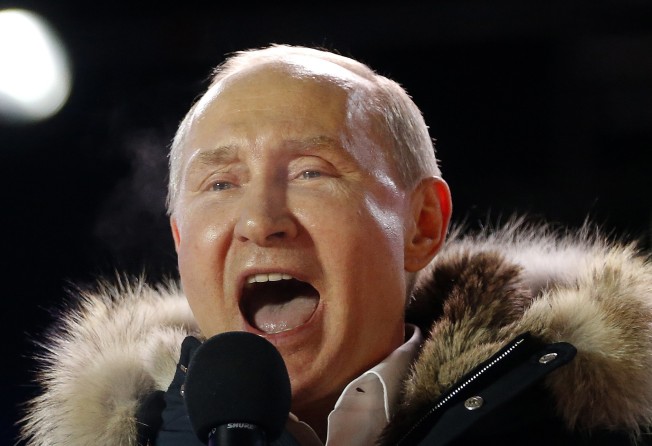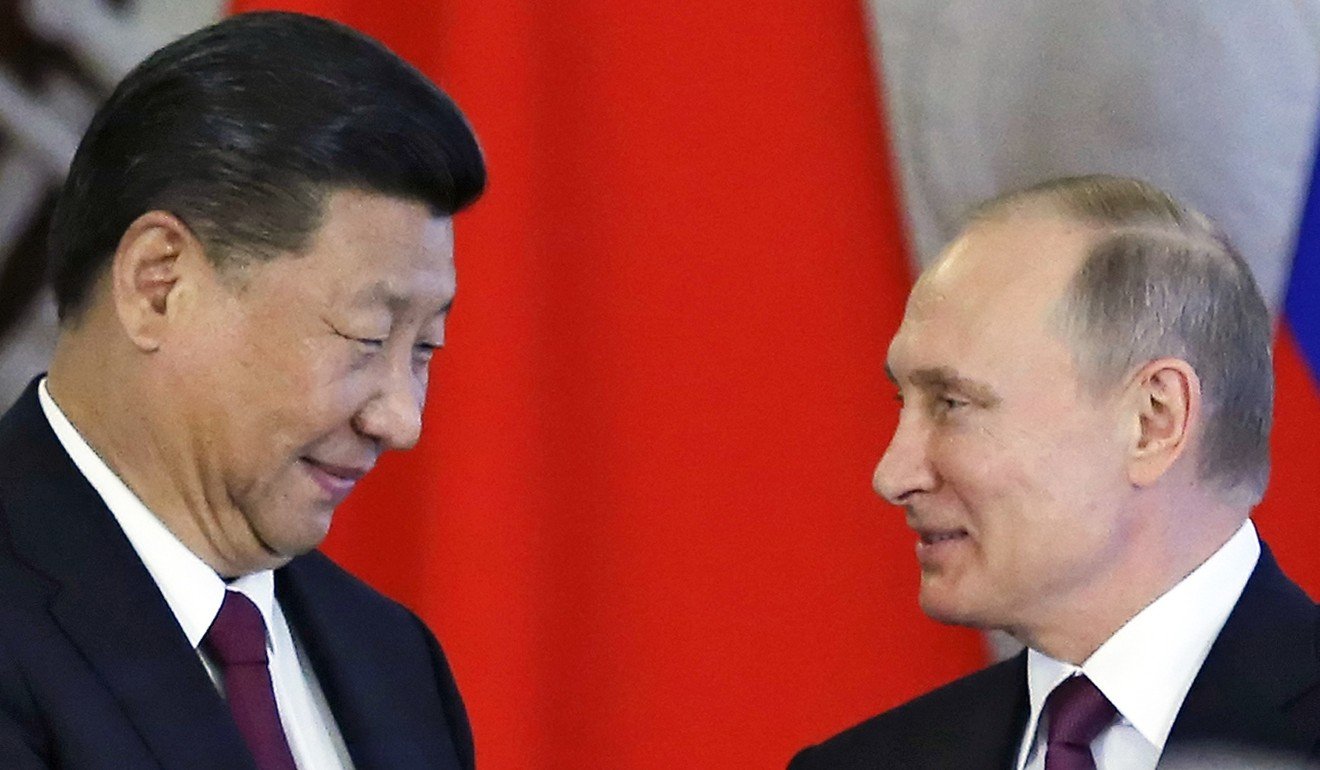Why Vladimir Putin and Xi Jinping’s mutual admiration society looks like it’s here to stay
Strongmen leaders expected to enhance cooperation to ensure they have a counterbalance to the US and its allies

Vladimir Putin and Xi Jinping lost little time in congratulating each other after the Chinese and Russian Presidents both secured another term in office over the weekend – despite the much more reticent response from leading Western nations.
Analysts expect Xi and Putin to enhance their rapport because Beijing and Moscow need each other to act as a counter balance to the United States.
Putin was the first foreign leader to send a congratulatory note to Xi on Saturday less than an hour after Xi received unanimous support from the National People’s Congress to serve a second term as president.
On Monday, Xi returned the favour by congratulating Putin after he received almost 77 per cent of the vote in Sunday’s presidential election – a contest where many of his opponents had been banned from running.
In his message to Putin, Xi said the comprehensive strategic cooperative partnership between China and Russia was at “the best level in history” and could set an “example for building a new type of international relations”.
The message from Putin to Xi on Saturday was similar, with the Tass news agency reporting that Putin had said the NPC vote was a sign of Xi’s “high prestige”.
But the leaders of many Western nations have refused to comment.
Although the presidents of Italy and Portugal sent a message of congratulations to Xi, and the German Chancellor Angela Merkel – whose fourth term of office was confirmed last week – spoke to him by phone, the British Prime Minister Theresa May and French President Emmanuel Macron remained silent.
United States President Donald Trump also has not sent his formal congratulations, although he has previously joked that he favoured removing term limits in the US as well as in China.
Trump, whose campaign’s ties to Russia are being investigated by special counsel Robert Mueller, has also yet to comment on Putin’s reelection.

Analysts said the friendly ties between China and Russia would further develop in the coming years due to their shared national interests – especially with regards to dealing with the West.
Xi has visited Russia six times since coming to power, and he has met Putin more than 20 times in total.
The two nations have teamed up to veto United Nations Security Council resolutions concerning the ongoing conflict in Syria and pledged to maintain the post-Second World War international order.
Kerry Brown, director of the Lau China Institute at King’s College in London, said that while Russia lacked China’s economic clout, it still provided Beijing with a convenient counterweight to the West.
“Sino-Russian relations are very pragmatic. But in the end China will be increasingly dominant. Longer term China is the only power with the real ability to truly contest US dominance.
“And It is already doing so. For China, Russia is a convenient power – for Russia, China is a necessary one. That’s the difference,” said Brown.
But Liang Yunxiang, an international relations expert from Peking University, said the strong ties that had developed between Xi and Putin might trigger more tough gestures from Washington.
“Their strongman style of leadership will necessarily make the US more nationalistic. Washington might trust China less and increase its military budget to counter China’s increasingly assertive moves. In this sense, friction between China and the US is likely to become more frequent,” said Liang.
Huang Dahui, an international relations specialist from Renmin University in Beijing, said:
“Although China’s power is expected to continue rising on the world stage, Beijing’s ties with Washington will not be dominated by frictions.
“Globalisation means every country has to value its relationship with each other,” said Huang.